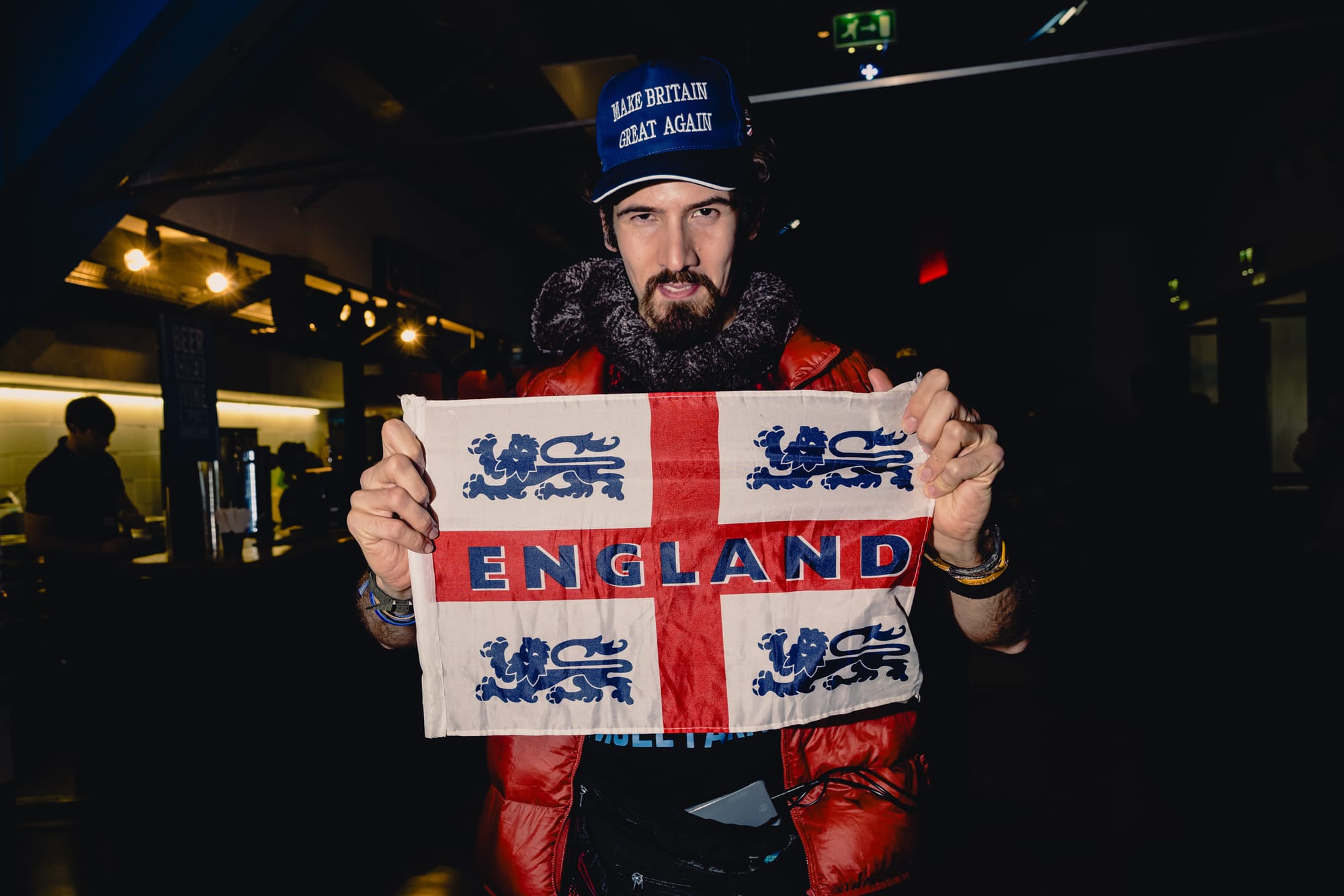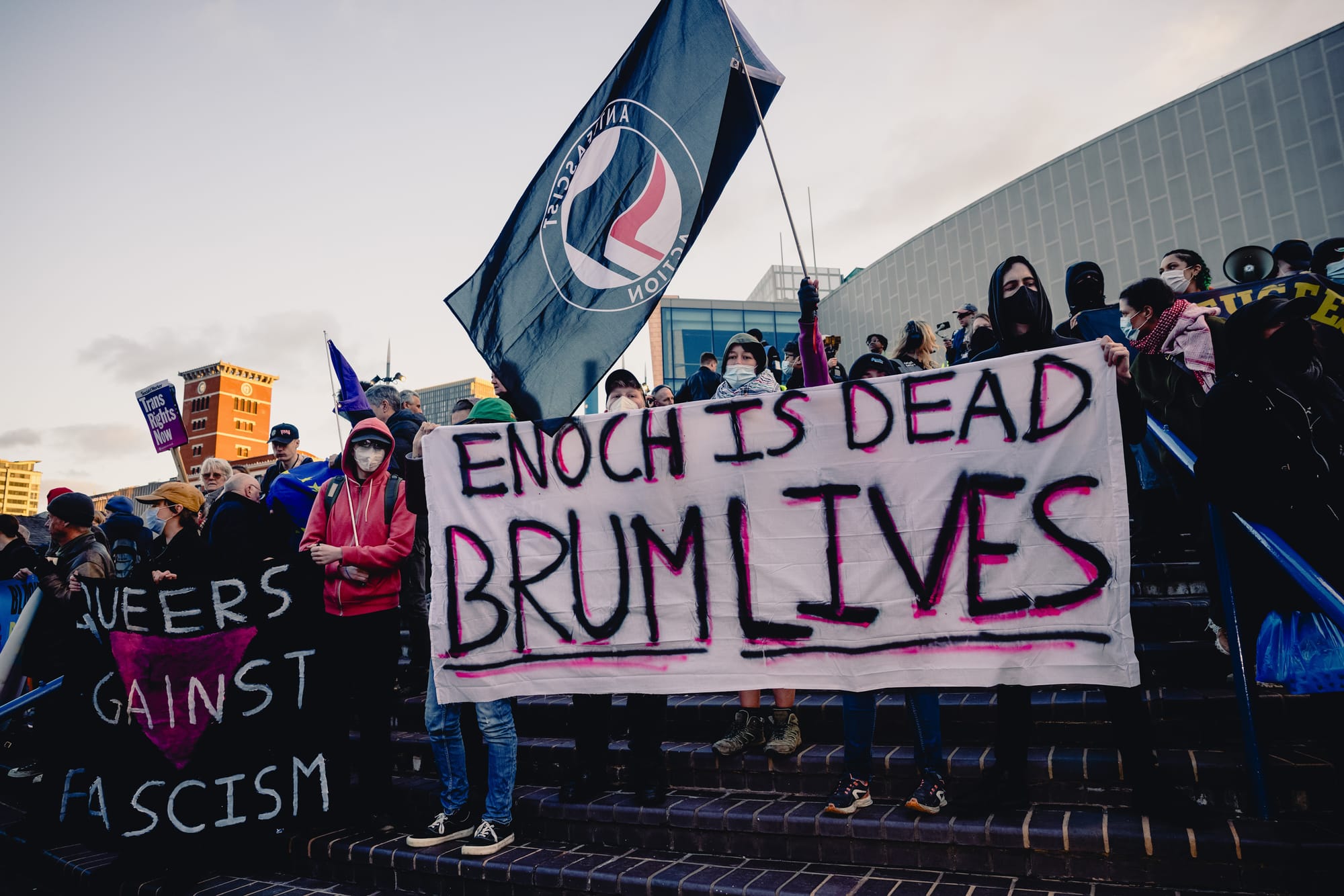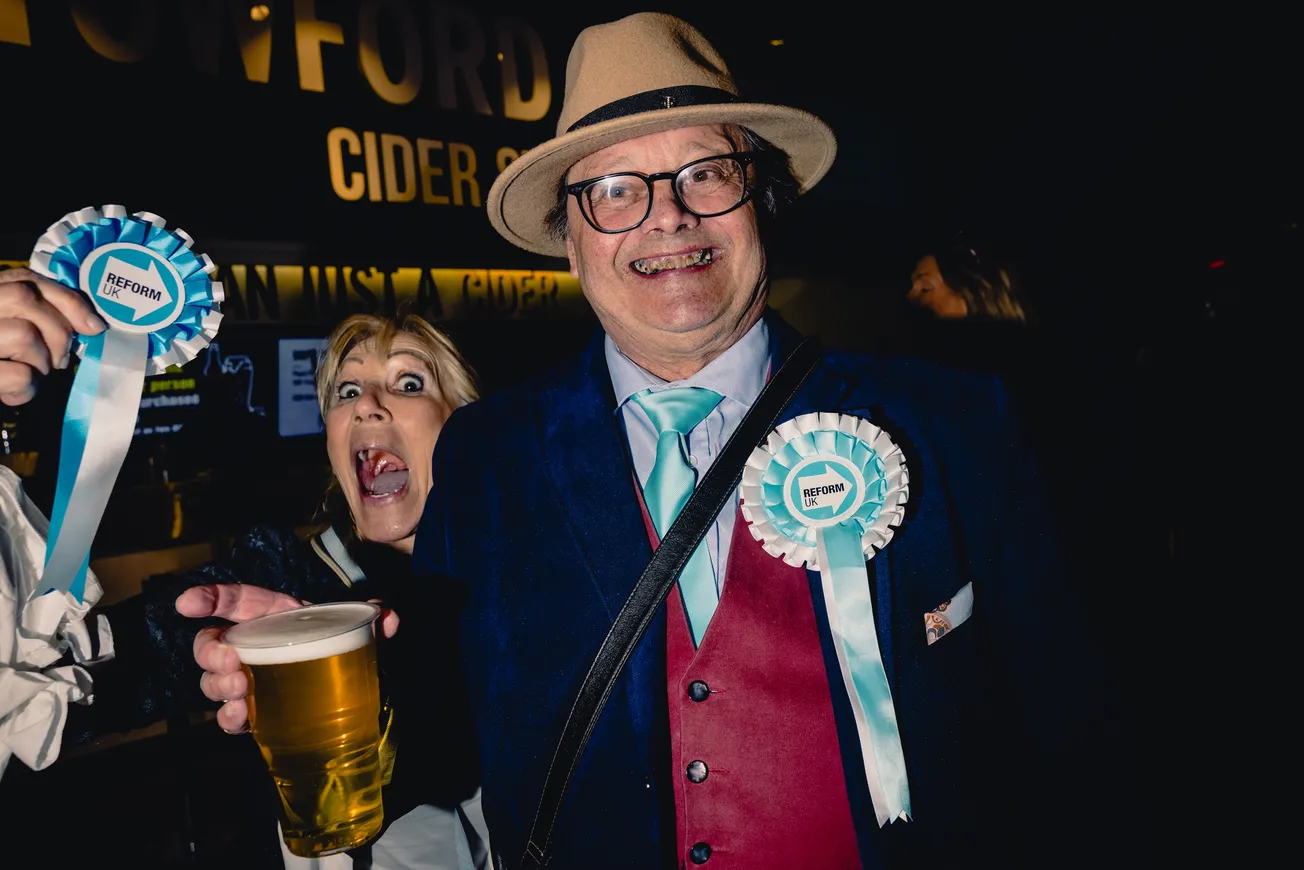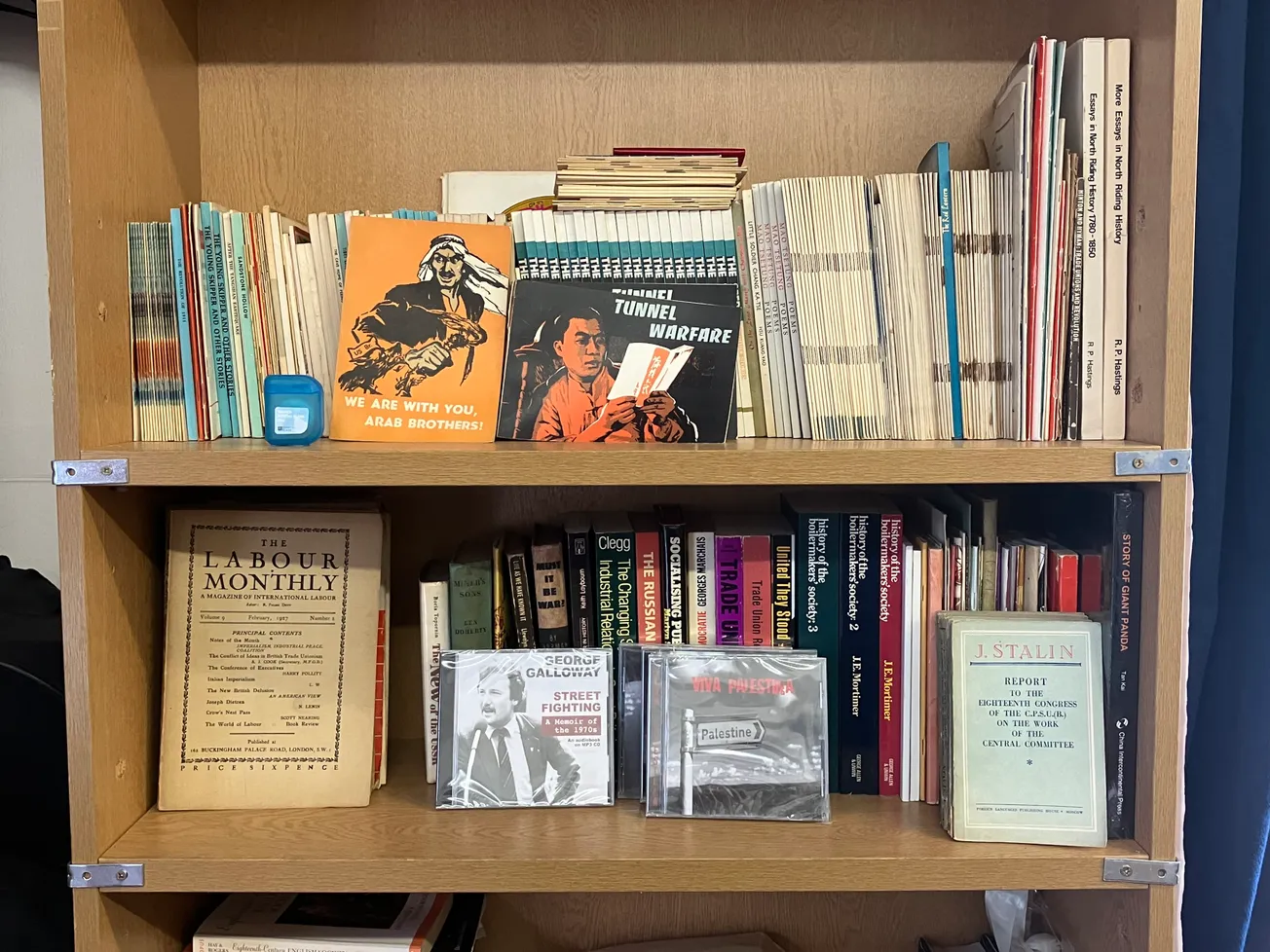At the press entrance to Birmingham’s Utilita Arena, I am greeted by a large blonde American. “What’s ya name, buddy?” he asks earnestly. This should have been an early warning sign that I was leaving England’s Midlands and entering another realm: somewhere equidistant between the fever dream of Donald Trump’s White House and a stagnant Westminster.
A month ago, Reform UK announced their intention to hold “the biggest British political event since WWII.” Posters and online advertising popped up everywhere in the weeks before the rally, featuring leader Nigel Farage posing in homage to WWI war hero Lord Kitchener, behind a Union Jack. Where to host such a momentous assembly? London, Brighton, Manchester, no — Birmingham, naturally.
Many people in Brum I’ve spoken to since the event was announced have dismissed the idea that Birmingham holds a special resonance for Reform and Farage. Instead they point to the fact that the city sits smack bang in the middle of the country and has a plentiful array of large event spaces. But is Farage’s choice to constantly hold national-level Reform events in Birmingham and the broader Midlands — at least three since Reform was founded in 2018 —, merely a case of logistical efficiency? Or is it an expression of their manufactured identification with the middle of England, if not middle England?

Once security finish frisking me (the most dangerous weapon I’m carrying is a dictaphone), I slip into a human menagerie: traditional floppy-haired Tory Boys, Kerry and Kurtan lookalikes from This Country, Home Counties entrepreneurs in jeans and blazer combos, baffled aristocrats, bikers, Nigerian businessmen with briefcases, right-wing hipsters, affluent Hindus from Oxford, blue rinse grandmas, Warhammer nerds in 19th century cravats, tweenagers on a big day out, MMA fighters in ill-fitting suits, middle-aged men resembling Walter from The Big Lebowski, zimmer frame radicals, Sikh gentlemen with luxurious beards, ladies who lunch, 30-somethings with plugs and topknots, landyarded special advisers glued to their phones, guys with dragon t-shirts and — as my time propping up the bar reveals — a dangerous coalition of real ale fanatics and IPA connoisseurs alike. Overwhelmed by it all, I head up to the press room.
I’m half expecting to be greeted with a table of rare steak, Benson and Hedges cigarettes and Newcastle Brown Ale, evoking the days when we were a real country, with sky high cholesterol. Instead, I’m disappointed by a spread of hummus, feta, and cocktail sausages. In the background, a gaggle of journalists mutter darkly. “The press side of things has been a shambles, really. I mean things were much better when Gawain Towler was in charge. And what happened to Rupert?”
Towler was Farage’s right-hand man, steering his media coverage — including the UKIP and Brexit Party years — for two decades. Fired in 2024, he was joined in exile by the MP Rupert Lowe last month, the latter split causing a bitter online war of words. Some dispatches from the rally reported it was haunted by Lowe’s spectre. However, a few Shropshire candidates I talked to told me he “wasn’t missed.”

After a few minutes I and other assembled press are whisked away on an arena tour by a Reform PR man with a plummy RP accent and skinny blue suit. Normally, the nature of these big political events is that they have little, to no, connection with the cities that host them. Westminster apparatchiks, and punters alike swing in via train or ministerial car and leave soon after, never getting a sense of the city that has been chosen to tolerate them that week.
This is different. Reform’s events team have clearly understood the brief. This rally is to launch the party’s local elections campaign; while there are no contests tabled for Birmingham, Staffordshire, Warwickshire, Shropshire and Worcestershire are all going to the polls. These are all Tory dominated authorities, with a strong chance of returning, at minimum, a Reform plurality on 1 May. But Farage and co are looking further ahead — on their current trajectory, Reform are predicted to take the Black Country, Birmingham Northfield and chunks of Warwickshire at the next general election.







